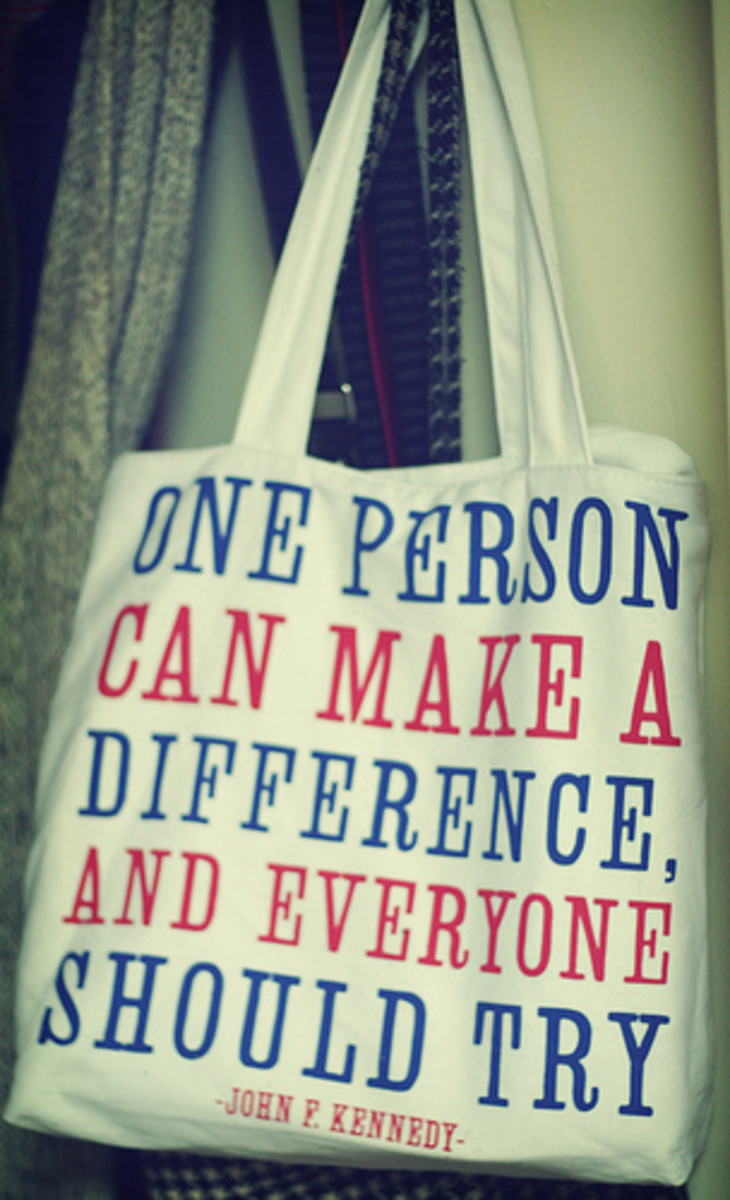Peter Singer Analysis
The following four articles all demonstrate the power of the written word. Through their works, these authors convince their readers to come out of their comfort zone and start examining the numerous issues surrounding our society today.
The four articles I will be discussing in this piece are:
"A Meaningful Life"
by Peter Singer
"Fear Factories"
by Matthew Scully
“The Women’s Crusade”
by Nicholas D. Kristof and Sheryl WuDunn
“Restoring the Right to Vote”
by Erika Wood
I have analyzed the main problems, suggestions and prescriptions which each author lays out within their text. I have also written why their piece is so moving and effective. The main idea of all of these articles is human involvement and change.

- "A Meaningful Life" by Peter Singer
The death of the world's most effective animal rights activist does not rate with that of a drugged-out rock singer. So when Henry Spira died, on September 13, his death passed without notice, apart from a three column obituary in the...

Problems
| Suggestions
| Perscriptons
|
|---|---|---|
Animals are being tested.
| “No being was more ruthlessly exploited than a laboratory rat, or a battery hen” (1).
| “If you see something wrong, you have to think: ‘Can I put it right?’” (1). Henry Spira convinced many makeup corporations to stop using animals for testing.
|
Animal production for food is bad for the environment, healthy living, and exploits animals.
| “It is ironic that just as the developed countries are beginning to reconsider the desirability of a diet high in animal products, the developing countries are expanding animal production at a rate that overwhelms any reductions of developed countries” (2).
| “It came from applying insights gained over four decades spent working on the side of the weak and oppressed, learning from others what strategies are likely to succeed and trying them out. Knowledge of that kind is empowering. It can be passed on to others who will use it in the same way, adding to it and adapting it to the circumstances they face” (2).
|

"A Good Life" According to Singer
After reading the inspiring story of Henry Spira, I was enlightened; while he was dying, in the last two years of his life, he still worked for what he believed in. This allowed him to live a fulfilling life, which did not make him disappointed to end it.
I do not think that Singer’s article made me want to protect animal rights; instead, it helped me realize that I need to have “a meaningful life,” standing up for the issues that concern me, so that I successfully create change.

- "Fear Factories" by Matthew Scully
A few years ago I began a book about cruelty to animals and about factory farming in particular, problems that had been in the back of my mind for a long while...

Problems
| Suggestions
| Prescriptions
|
|---|---|---|
“The abuses of industrial farming [is] a serious moral problem, a truly rotten business for good reason passed over in polite conversation” (7).
| “What moral standards should guide us in our treatment of animals, and when must those standards be applied in law?” (7).
| “We are trying to hold people to their obligations, people who could spare the trouble is only they would recognize a few limits on their own conduct” (8).
|
“It is assumed that animal-protection causes are a project of the Left, and that proper conservative position is to stand warily and firmly against them” (7).
| Some conservatives view the animal-protection movement to be moot because of biblical references or a way to distract from the morally-challenging issue. “A certain moral relativism runs through the arguments of those hostile or indifferent to animal welfare—as if animals can be of values only for our sake, as a utility or preference decrees. In practice, this outlook leaves each person to decide for himself when animals rate moral concern” (9).
| “All creatures sing their Creator’s praises, as this truth is variously expressed in the Bible, and are dear to Him for their own sakes” (9). What is the difference between many animals used for food production, or a sick pet? Does sympathy for each differ and why? (9) “Proverbs reminds us of this—‘a righteous man regardeth the life of his beast, but the tender mercies of the wicked are cruel” (9).
|

Scully illustrates the cruelty of animals through the conservative’s point of view, asking others to join him in this cause. The reasons why conservatives are usually silent in the movements against animal cruelty are biblical and differential to that of the Left. By making clear and reasonable points, a reader of any political or religious standpoint can see the issues of animal cruelty through food production. He made me realize that I should care about the rights of animals, because they are being exploited in ways that I was unaware of. He also showed me that the ways in which I could be involved are endless.

- “The Women’s Crusade” by Nicholas D. Kristof and Sheryl WuDunn
The liberation of women could help solve many of the world’s problems, from poverty to child mortality to terrorism.

Problems
| Suggestions
| Perscriptions
|
|---|---|---|
“Sex trafficking, acid attacks, bride burnings and mass rape” (1).
| “In a large slice of the world, girls are uneducated and women marginalized, and it’s not an accident that those same countries are disproportionately mired and poverty riven by fundamentalism and chaos” (1).
| |
Women are getting beaten by their husbands over debt.
| If the women are making money, the man has no reason to punish her (2).
| Kashf, a microfinance organization, helps women who are in debt, make money.
|
“Bride burnings” happen almost every two hours in India.
| “The number of victims of this routine “gendercide” far exceeds the number of people who were slaughtered in all genocides of the 20th century” (3).
| “‘Women are the key to ending hunger in Africa’” (The Hunger Project, 6).
|
Many women are uneducated and therefore are driven into poverty. “‘If you’re a woman and you are not educated, what else?’” (Tererai, 8).
| Men spend money unwisely and selfishly (on tobacco or alcohol), while women tend to spend their money on necessities for the family (5).
| “With an education and with help starting businesses, impoverished women can earn money and support their countries as well as their families. They represent perhaps the best hope for fighting poverty” (4). “We would recommend that the United States sponsor a global drive to eliminate iodine deficiency around the globe, by helping countries iodize salt” (7).
|
Childbirth injury
| “…it can be repaired for a few hundred dollars” (8).
| Build hospitals in the third world.
|


This article was very interesting and made me reflect on my travels to Kenya in 2007, where I talked with many women who had been oppressed by their husbands. And others, or the same women, who said they were victims of poverty because of their lack of education. Kristof and WuDunn made me realize how big of an issue women’s oppression is in the third world and how much room for social change there is in educating women in the third world. As many of the articles suggest, the United States government must be involved in solving this global issue. (I don’t see how they wouldn’t want to when the solution is simple and the results would change the structure of global society.)
The authors suggest that educating women is the most important goal, and I agree. Many of the women who are struggling to get by in the third world are uneducated due to early pregnancy, poverty or other factors. I also find that in Kenya, the pressure to find a spouse at a young age is very damaging to many of the youth in that culture. Because a man and a woman can not be seen in public together (as a pair), many youth marry without going through a “dating phase.” I believe this simply perpetuates gender roles, because the woman feels she needs to get married at a young age. This distracts from hopes and goals for their future, because they do not believe they will achieve anything without a man.

- “Restoring the Right to Vote” by Erika Wood
The right to vote forms the core of American democracy. Our history is marked by successful struggles to expand the franchise, to include those previously barred from the electorate because of race, class, or gender. As a result our democracy...

Problems
| Suggestions
| Solutions
|
|---|---|---|
“Denying the right to vote to people who are living and working in the community runs counter to the modern ideal of universal suffrage” (5).
| “The United States accounts for less than five percent of the world’s population, but almost half of those in the world who cannot vote because of criminal conviction are U.S. citizens” (6).
| When released from prison, one should be allowed to vote. Inform criminals that they cannot vote until they are released from prison. Help register eligible voters. Create “statewide voter registration databases” (3). Educate voters.
|
Parents who cannot vote cannot educate their children to vote.
| “Nationwide, 13 percent of African-American men have lost the right to vote, a rate that is seven times the national average” (8)
| “Restoring the right to vote sends the message that people are welcomed back as integral members of their home communities” (12).
|

After reading this article, I wonder why ex-convicts cannot vote. Although they have broken the law, they were put through a government system and should have some insight on the changes that could be put into effect. Wood shows us that thirteen percent of African-American men cannot vote in our nation due to felony disenfranchisement. Many of these ex-convicts could have been innocent, or they could have changed during their time in jail.
If we want to better our community, we would let them vote. Maybe the recidivism rates will lower because the ex-convicts can assimilate into society and have a voice through their vote. It is also important to educate incarcerated individuals and others about voting and obligation to vote. Parents may not be able to teach their children how to vote if they are unable to do so themselves.



